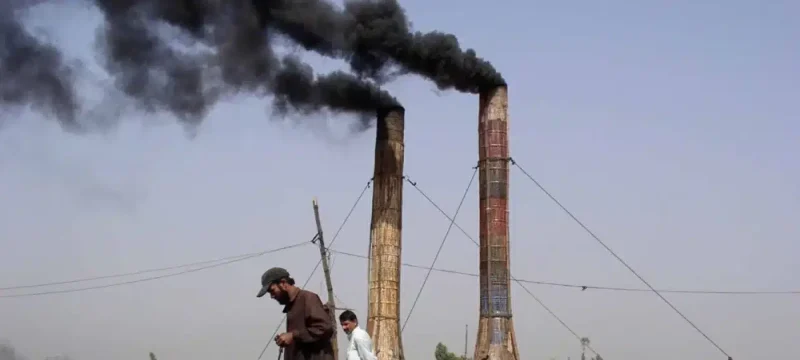A recent report released by the Energy Policy Institute at the University of Chicago (EPIC) has drawn attention to the escalating levels of air pollution in Pakistan, particularly in cities like Lahore, Sheikhupura, Kasur, and Peshawar. The findings suggest that this pollution could potentially lead to a reduction in life expectancy by as much as seven years. The study, presented through the Air Quality Life Index (AQLI), emphasizes the urgent need for actions to improve air quality in the region.
The AQLI is a comprehensive index that quantifies the impact of particulate air pollution on life expectancy. In Pakistan, particulate pollution ranks as the second most significant threat to public health, trailing only behind cardiovascular diseases. On average, it is responsible for shortening life expectancy by 3.9 years.
Also Read: GLOBAL WARMING IS A THREAT TO HUMAN LIFE
The report points out that the population of Pakistan, which stands at around 240 million, resides in areas where the annual average levels of particulate pollution exceed the guidelines set by the World Health Organization (WHO). Alarmingly, 98.3 percent of Pakistanis live in regions that surpass the country’s own air quality standard of 15 micrograms per cubic meter.
The study suggests that adhering to the WHO’s recommended annual PM 2.5 concentration of 5 micrograms per cubic meter could extend the average resident’s life expectancy by 3.9 years. In contrast, factors like child and maternal malnutrition, as well as maternal and neonatal disorders, reduce average life expectancy by 2.7 years.
The AQLI data spanning from 1998 to 2021 reveals a troubling 49.9 percent increase in average annual particulate pollution levels across Pakistan, resulting in a 1.5-year decrease in life expectancy. The provinces most affected by this pollution — Punjab, Islamabad, and Khyber Pakhtunkhwa — are projected to experience a loss of 3.7 to 4.6 years in average life expectancy compared to WHO guidelines. Similarly, they could lose 2.7 to 3.6 years compared to national air quality standards if pollution remains at current levels.
The report also offers a glimmer of hope by suggesting that achieving the WHO’s pollution standards could lead to significant gains in life expectancy. For instance, residents of Karachi might gain 2.7 years, while those in Lahore and Islamabad could experience gains of 7.5 and 4.5 years, respectively.
Furthermore, the study underscores India’s substantial contribution to the global escalation of pollution, accounting for 59 percent of the world’s increase in pollution levels since 2013.









